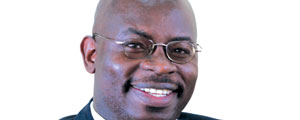
It’s not often that I write specifically about a company outside the financial services sector in this column, but then this is no ordinary company.
Financial Sector Spotlight with Omen Muza
You see, Anthony Mandiwanza, the CEO of Dairibord Holdings chairs Barclays Bank while Dr Leornard Tsumba, his Chairman, is a former Reserve Bank Governor who also happens to chair CABS, another notable financial services company.
So you can understand my fascination with Dairibord; a true-blue manufacturing company whose leadership is eminently financial sector-oriented! Another reason for my interest is that in an era in which latter-day State-owned enterprises are more well-known for being a drain on the fiscus, Dairibord will always remain a model of parastatal reform following its successful restructuring which culminated in a ZSE listing in 1997. I remember that I bought some shares and made a bit of money for myself.
Last week Dairibord published its financial results for the year ended December 31 2013 and it is these that inspired this week’s column, which I write more as a consumer who interacts with Dairibord and its products than as an analyst seeking to poke holes in its numbers. So you could say these are just random musings about how I have seen the company — just like many others —trying to make the best out of a difficult situation.
Once upon a time Dairibord was once so omnipresent that there was a time when it was practically imppossible to spend a day without interacting with several of its products — fresh milk or yoghurt in the morning, ice cream or Cascade in the afternoon and Super Creamy Lacto in the evening.
Nowadays, the company will be lucky if a consumer interacts with any one of its products, (thanks to a surfeit of cheap imported products) something which it has been trying to deal with by improving existing products and introducing new ones. However, a high-cost production base that makes products relatively expensive is the company’s greatest undoing. So what’s the moral of this story?
Dairibord’s case is emblematic of the negative impact of imported products on the growth of local industry. To be fair though, Dairibord’s competitive ocean has not been bloodied only by foreign products, but also by the emergence of some sleek products from formidable local competitors. To me, this points to the need to create conditions for local products to flourish once again and I think this can be achieved through a fine balance of supply side interventions and import tariff restrictions.
- Chamisa under fire over US$120K donation
- Mavhunga puts DeMbare into Chibuku quarterfinals
- Pension funds bet on Cabora Bassa oilfields
- Councils defy govt fire tender directive
Keep Reading
Cash is king Dairibord’s financial results also show that a company can still be viable without necessarily returning a profit, though not for long otherwise it will wipe away all the capital. In a year in which the company eventually posted an operating loss, it was still able to generate positive cash flows partly used to fund capital expenditure. Compare this to some banks which though profitable, cannot generate meaningful cash flows. Cash is indeed King!
Don’t just mourn, do something For some years, the constrained supply of raw milk has been a fact of life for Dairibord and its competitors. While initially the companies might have been content with waiting for the situation to get better, eventually they realised that they had to do something. The result is the dairy herd rehabilitation programme which saw Dairibord importing heifers in 2012. So while national milk production at farm level declined by 2% , raw milk bought by Dairibord increased by 1%, with 3% of milk supplied to the company coming directly from this project. The moral of the story? Don’t just mourn about the environment, get up and do something!
The courage to reconfigure During difficult times, the temptation is to gloss over the real issues needing surgical intervention and focus on cosmetology. This is because genuine reconstructive surgery which enhances ability to successfully engage with the future has an immediate adverse impact on profitability. In other words, it’s easy to revel in short term gains at the expense of long-term sustainability.
A good example is how some banks continue to limp along with high non-performing loans either because of genuine lack of capacity to provide for their impairment or due to plain unwillingness to report losses.
To its credit Dairibord had the courage to incur a once-off business restructuring cost of $3,1 million and other impairments amounting to $1,5 million. Resultantly, it recorded an operating loss of $1,8 million, compared to a profit of $9,8 million in 2012. The moral of the story? Dairibord could have chosen to declare a profit, but it would have been meaningless to declare it at the expense of creating a stronger organisation for the future.
If you get lemons, make lemonade The cocktail of challenges faced by Dairibord in a thankless operating environment include declining consumer purchasing power, declining consumer prices on some key brands, supply challenges and intense competition from imported products as well as the weakening rand which created favourable conditions for the South African imports to thrive. Where it might expect to get oranges, Dairibord, just like other local manufacturing companies, is clearly getting lemons from the operating environment.
Instead of cursing and throwing them away, the company has a choice to make lemonade and through a combination of rationalisation, cost control and well-considered investments, it appears to have largely succeeded in doing so.











